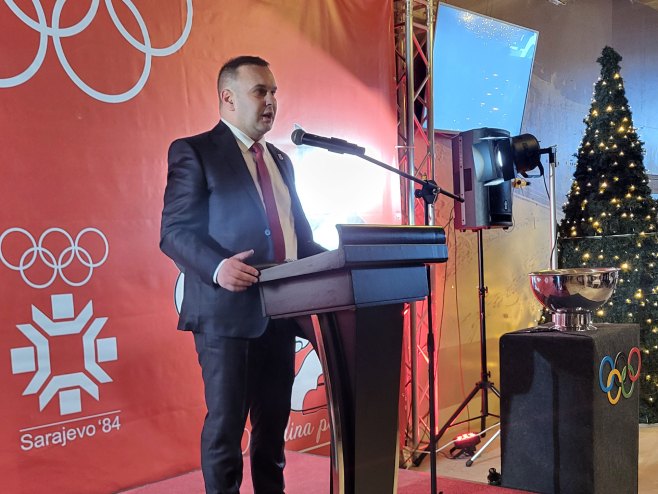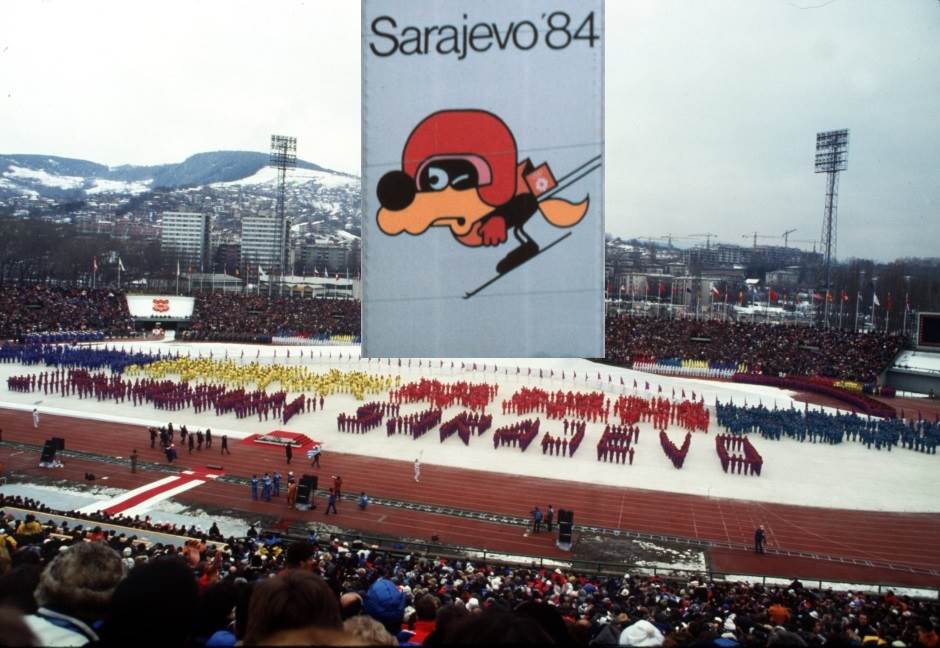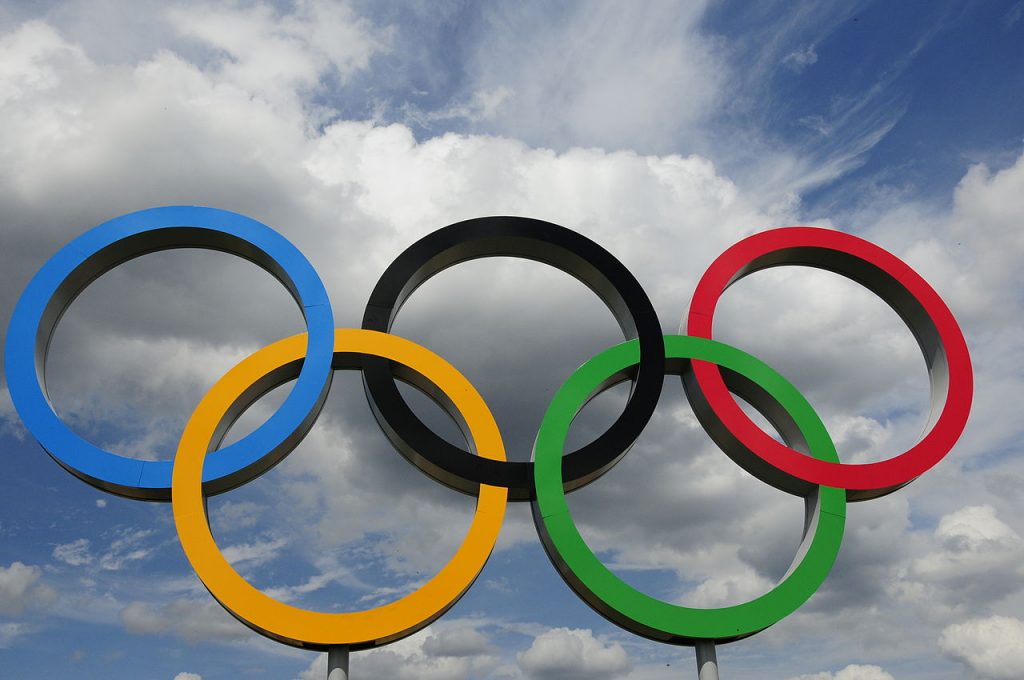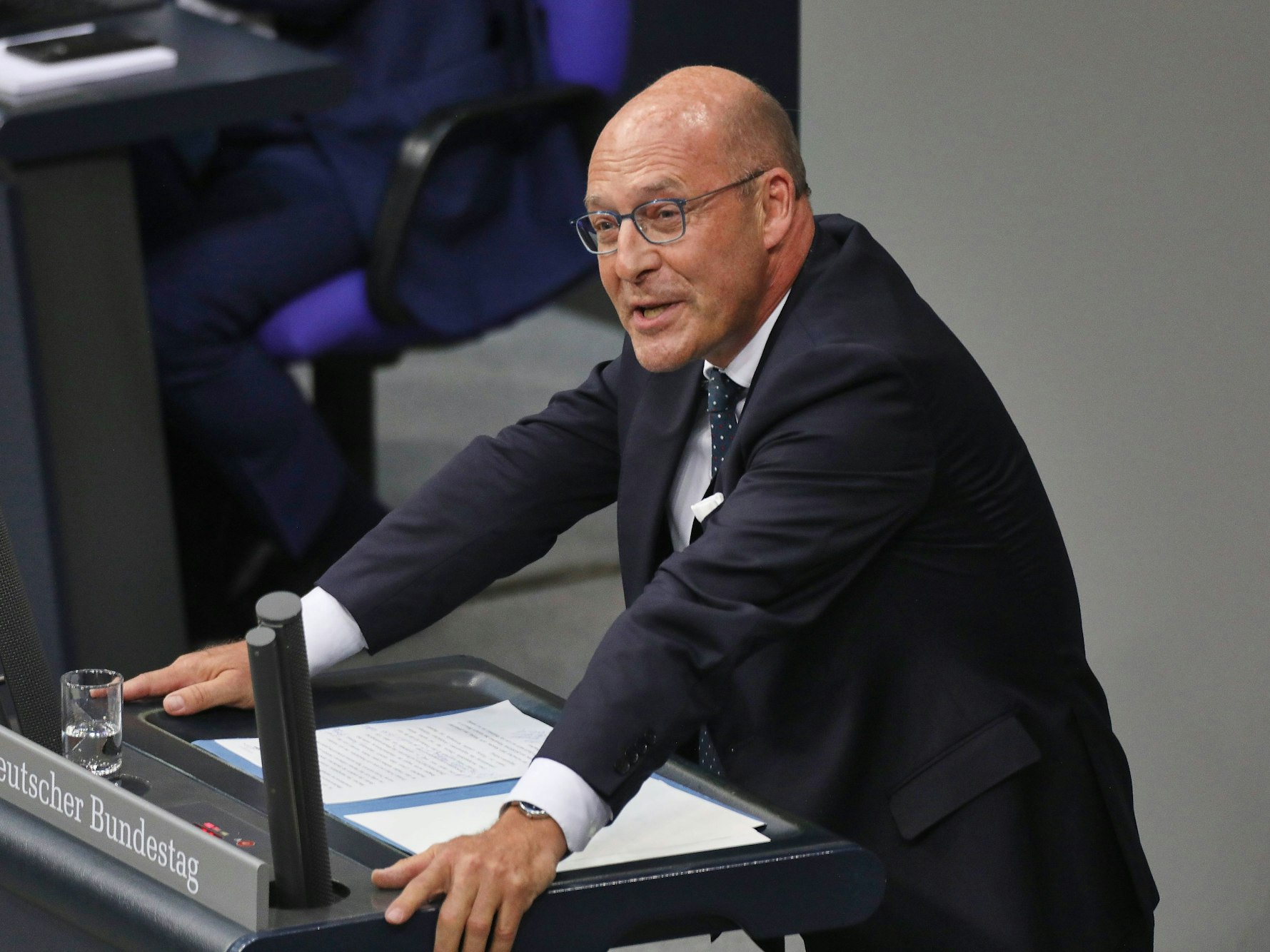The Mayor of East Sarajevo, Ljubiša Ćosić, stated today at Jahorina that East Sarajevo and Sarajevo are jointly planning to organize the Winter Youth Olympics in 2032.
Ćosić, marking 40 years since the Winter Olympics, highlighted that this area has all the prerequisites to host significant events.
He told reporters after a ceremonial lunch organized for representatives of the International and European Olympic Committees, municipal leaders within the city, former Olympians, and representatives of public, political, economic, and cultural life, that everyone is working together to affirm what has been done and to promote future events.
Ćosić emphasized that today was an opportunity to showcase the investments of millions of funds by the Government of Republika Srpska into this mountain, where the Olympic Center “Jahorina” operates successfully, a considerable number of people from the private sector have invested capital in accommodation capacities, and the local government and city have focused on tourism as a significant economic branch.
“This joint action should affirm significant future sporting events that will have the hallmark of Olympic events,” said Ćosić.
He mentioned that today’s symbolic lunch and the academy to be organized on Saturday, February 10, will be an opportunity to send a message that they are capable of hosting significant sports events and are good organizers, showing that East Sarajevo, Republika Srpska is a place of good stories.

“Our internal spirit and strength are such that we managed to create from some arenas that looked different in 1984 than they do today, arenas that will surely be candidates for future sports events,” Ćosić conveyed.
The President of the Olympic Committee of BiH, Izet Rađo, thanked the Mayor of East Sarajevo, Ćosić, for gathering officials of the European and International Olympic Committees on the mountain, stating that the celebration is a good moment for everyone to embark on a new Olympic journey together.
“Together we can elevate everything to a higher level. Through joint work, a joint candidacy of East Sarajevo, Sarajevo, Republika Srpska, FBiH, and BiH, and with the support of the international community and friends from the region, I am sure that in 2032 we will light the Olympic flame again,” said Rađo.
He added that this aims to send a message to the youth to stay so that in 2032, the flame of peace, youth, love, and friendship will illuminate the Olympic mountains again.
Former Yugoslav Olympian Bojan Križaj recalled his first memory of the Olympics when he forgot the oath text at the Koševo stadium in front of the world audience, which still makes him shy in front of people.
He said he is proud to have been part of that community and encouraged the youth to engage in sports.
Pere Miro, a senior advisor to the President of the International Olympic Committee, stated that the Olympic flame lit in 1984 has remained all these years, as he sees it in the eyes and smiles of people.
The head of the Pale municipality, Boško Jugović, emphasized that the Paljani are proud to be part of marking 40 years since the Winter Olympics.

Jugović said a lot has been invested in tourism and sports, highlighting that Jahorina, thanks to the President and the Government of Srpska, as well as the Olympic Center, not only has the Olympic spirit returned to its facilities, but it has also become a leader in the region.
“Jahorina, along with the surrounding sports centers, should offer its participation in the next Olympics,” said Jugović.
Today, at the “Vučko” aparthotel on Jahorina, the Olympic flame was symbolically lit, and the President of the Olympic Committee of BiH, Izet Rađo, presented replicas of tracksuits from 1984 to the Mayor of East Sarajevo, Ljubiša Ćosić, and the director of the Olympic Center “Jahorina,” Dejan Ljevnaić.
On February 8, 1984, the 14th Winter Olympic Games were opened in the area of today’s East Sarajevo and Sarajevo, with athletes from 49 countries participating.
These were the first Winter and the second Olympic Games held consecutively in Eastern Europe, in a Slavic language-speaking area, and in a socialist country.
For the Yugoslav authorities, the Olympics were an excellent opportunity to present the country to the world in the best possible light, and they were undeterred by the severe economic crisis that hit SFRY in the early 1980s.
Significant funds were invested in the Games, resulting in many impressive buildings and other infrastructure.
After the Olympics ended, there was a gradual decline of the Olympic venues, which were completely
destroyed during the war events.
Today, of all the Olympic venues, only Jahorina in East Sarajevo, Republika Srpska, remains a representative winter center.
Source: RTRS









